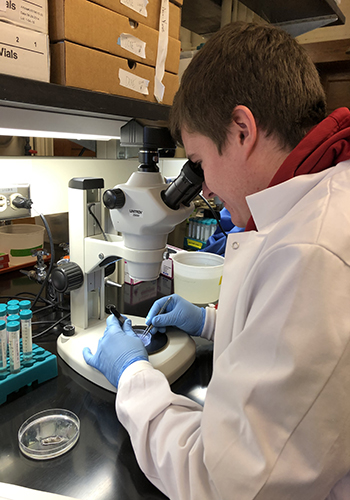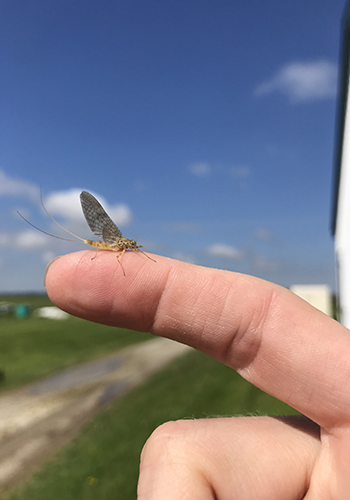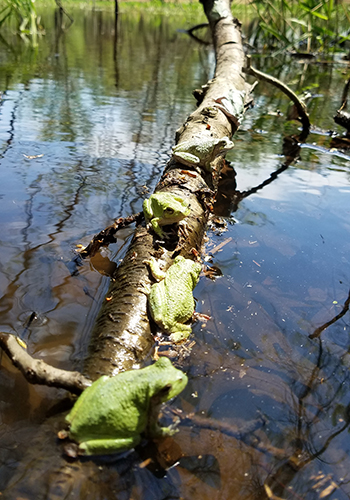Aquatic Community Ecology Lab

The Aquatic Community Ecology Lab is located on the West Lafayette Campus in the Forestry Building room 119 (FORS 119). The research group is broadly interested in the fields of community ecology, ecotoxicology, and disease ecology. Given the strong influence of human activities on natural systems, we increasingly emphasize the interactive effects of natural (e.g., predators, pathogens, competitors) and anthropogenic (e.g., chemical contaminants, habitat loss) factors in our work. Our general approach is to combine laboratory and mesocosm experiments with broad-scale field surveys to provide mechanistic insights into these effects. To address our research interests, we use freshwater aquatic systems (e.g., ponds, wetlands, and lakes) and their associated taxa (e.g., tadpoles, snails, insects, fish, parasites).
Research faculty



Lab Manager & More About Our Research
Jason Hoverman
195 Marsteller Street
W. Lafayette IN 47906
Phone: 765.496.3263
Email: jhoverm@purdue.edu
Learn about our nine Research Areas and meet our world-class faculty members.
Allied research centers seek to support and enhance the research and partnership enterprise at Purdue University. The centers are valued and encouraged as they create a venue for faculty to come together to pursue common goals. Forestry and Natural Resources faculty and staff are involved in six centers at the University.
The Department of Forestry and Natural Resources maintains an impressive collection of state-of-the-art research and education facilities. These labs, green houses, and educational facilities are a fundamental component that enables our faculty and students to learn, make new discoveries, and engage our clients in using these discoveries to sustain our nation’s ecosystems and natural resources.
